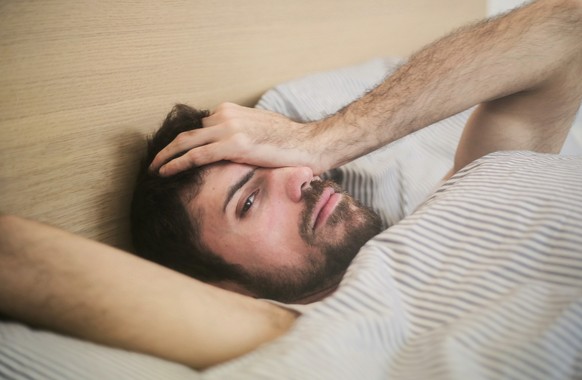Powerless and sad: This could be related to a corona infection.image: pexels
Health & Psyche
It is now common knowledge that Corona is not a simple cold with a bit of cough and runny nose. Many people still struggle with shortness of breath, concentration and memory problems, fatigue or muscle weakness weeks and months after a corona infection.

Corona is not just a simple cold.image: pexels
But that’s not enough. A new study by biochemist Shuibing Chen from the US elite Cornell University came to the conclusion that coronaviruses can infect the nerve cells in the brain in particular, which are responsible for the production of the happiness hormone dopamine. Dopamine is a chemical messenger that transmits signals in the brain, triggering feelings of happiness and reward.
Unhappy after corona infection: happiness hormones are missing
For the study, the researchers grew artificial cell types in the laboratory. These include the “Berlin morning post” According to lung, pancreas, heart and brain cells. The cells were then infected with the coronavirus. The result: Only the cells in the brain that are responsible for producing the happiness hormone reacted to the coronaviruses.
Watson is now on WhatsApp
The infection prevented the affected cells from growing and dividing. This made them age faster or even caused them to stop functioning completely. The cells therefore no longer released dopamine. The result: depressed and depressed mood, lack of motivation, dwindling concentration.
The researchers also came to the conclusion that only five percent of the dopamine neurons that were exposed to the coronaviruses were also infected. Nevertheless, study leader Shuibing Chen warns of the consequences:
“The infection rate of dopamine neurons is not as high as that of lung cells, the main target of the virus. But even a small population of infected cells can have potentially serious effects.”
In order to best protect the nerve cells from the coronaviruses, the research team then looked for ways to prevent the bad mood due to decreasing dopamine release.
According to the study, three medications could help against depressive moods
According to the “Berliner Morgenpost”, the scientists found that the drug riluzole could have prevented dopamine cells from aging and prevented the cells from becoming infected. The drug is usually used to treat an incurable, serious disease of the nervous system.

The severity of the illness determines whether happiness hormones are missing.image: pexels
Metformin, which is used to treat diabetes, and the cancer drug Imatinib would also have prevented cell infection – at least in the laboratory. Whether the agents should actually be used as protection in humans still needs to be investigated in further studies.
But you don’t have to be afraid of depressive moods. According to the study, neurological symptoms are not automatically to be expected after every corona infection. Whether this actually happens depends on the severity of the infection and the genetics of the sufferer. How long these symptoms last is unknown.


